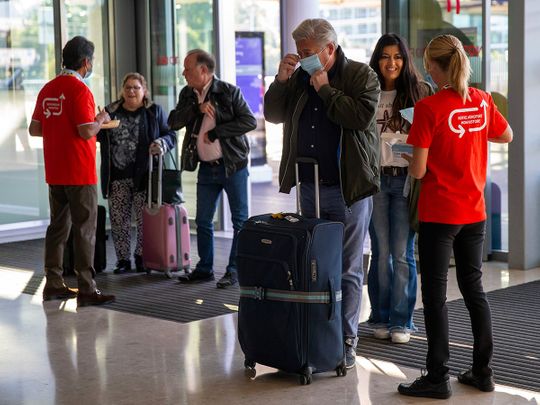
Dubai: The acute shortages in staffing at US and European airport hubs will take time to get back to required capacities, according to IATA.
“Nobody wants to see passengers suffering from delays or cancellations - passengers can be confident that solutions are being urgently implemented,” said Willie Walsh, IATA’s Director-General. “Airlines, airports and governments are working together. However, standing up the workforce needed to meet growing demand will take time and require patience in the few locations where the bottlenecks are the most severe.”
Total global traffic in May - measured in revenue passenger kilometers or RPKs - was up 83.1 per cent compared to May 2021. Global traffic is now at 68.7 per cent of pre-Covid crisis levels. International traffic rose more than 325 per cent during the same period due to the easing of travel restrictions in most parts of Asia. Domestic traffic rose by less than 1 per cent due to travel restrictions in China.
“The major exception to the optimism of this rebound in travel is China - Its continuing zero-Covid policy is out-of-step with the rest of the world, and it shows in the dramatically slower recovery of China-related travel,” said Walsh. “Many major international route areas – including within Europe, and the Middle East-North America routes - are already exceeding pre-COVID-19 levels.”
Middle Eastern airlines’ traffic rose 317 per cent in May, while capacity surged by 115.7 per cent versus the year-ago period. Load factor climbed 37.1 percentage points to 76.8 per cent. “The progressive re-opening of Asian markets is boosting traffic through Gulf hubs,” said IATA.
The cargo segment did not do quite well for the region’s airlines in May, with volumes falling 11.6 per cent from a year earlier. “Significant benefits from traffic being redirected to avoid flying over Russia failed to materialize - this is likely due to persisting supply chain issues in Asia,” said IATA.








